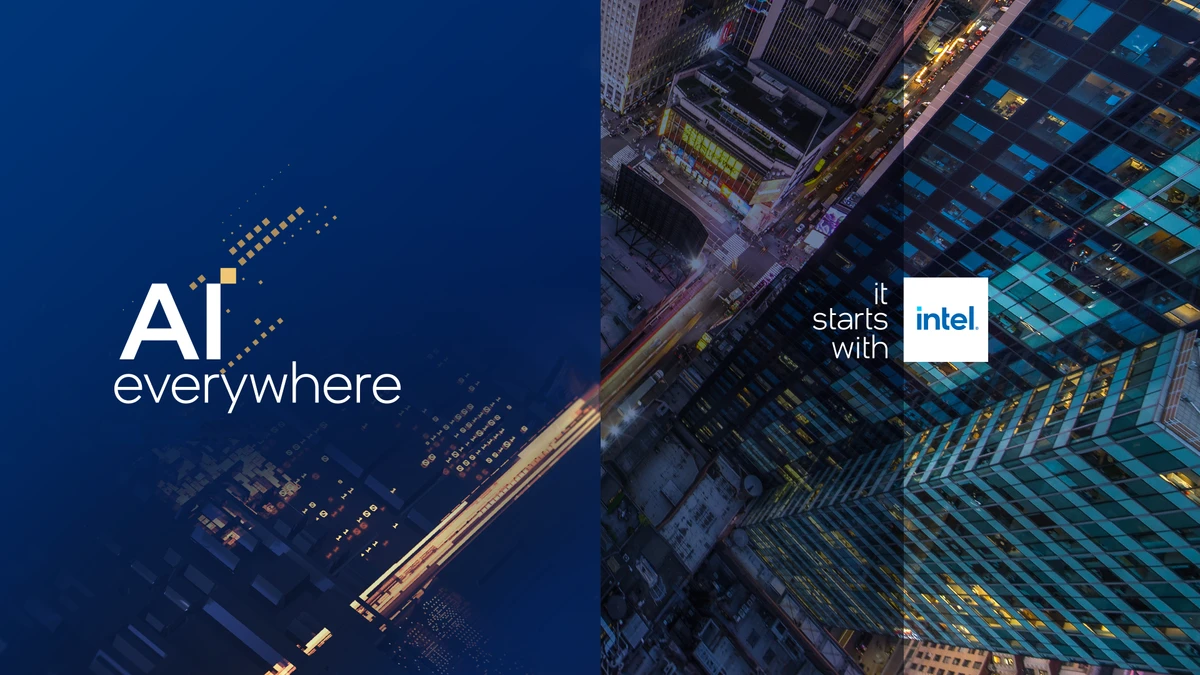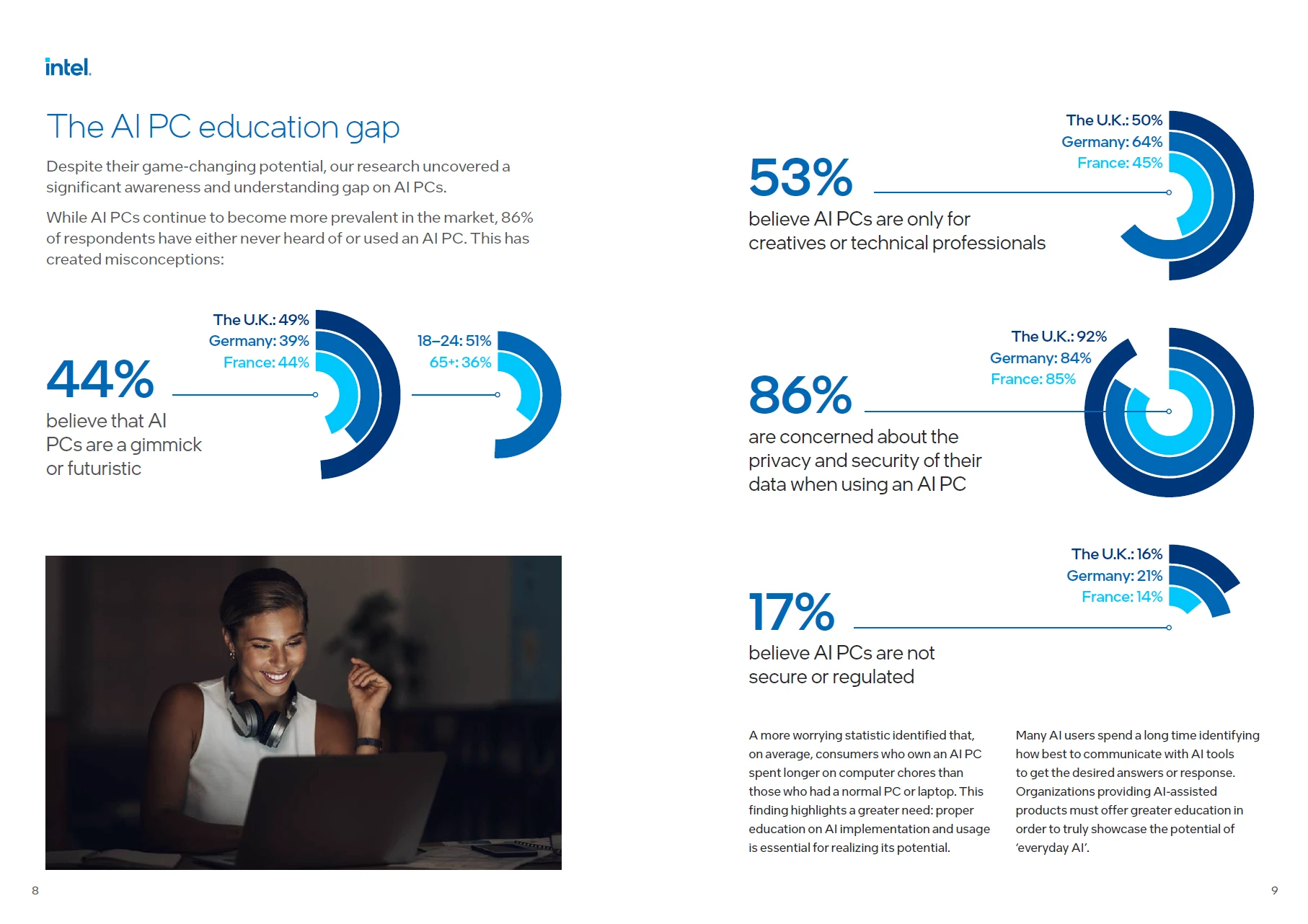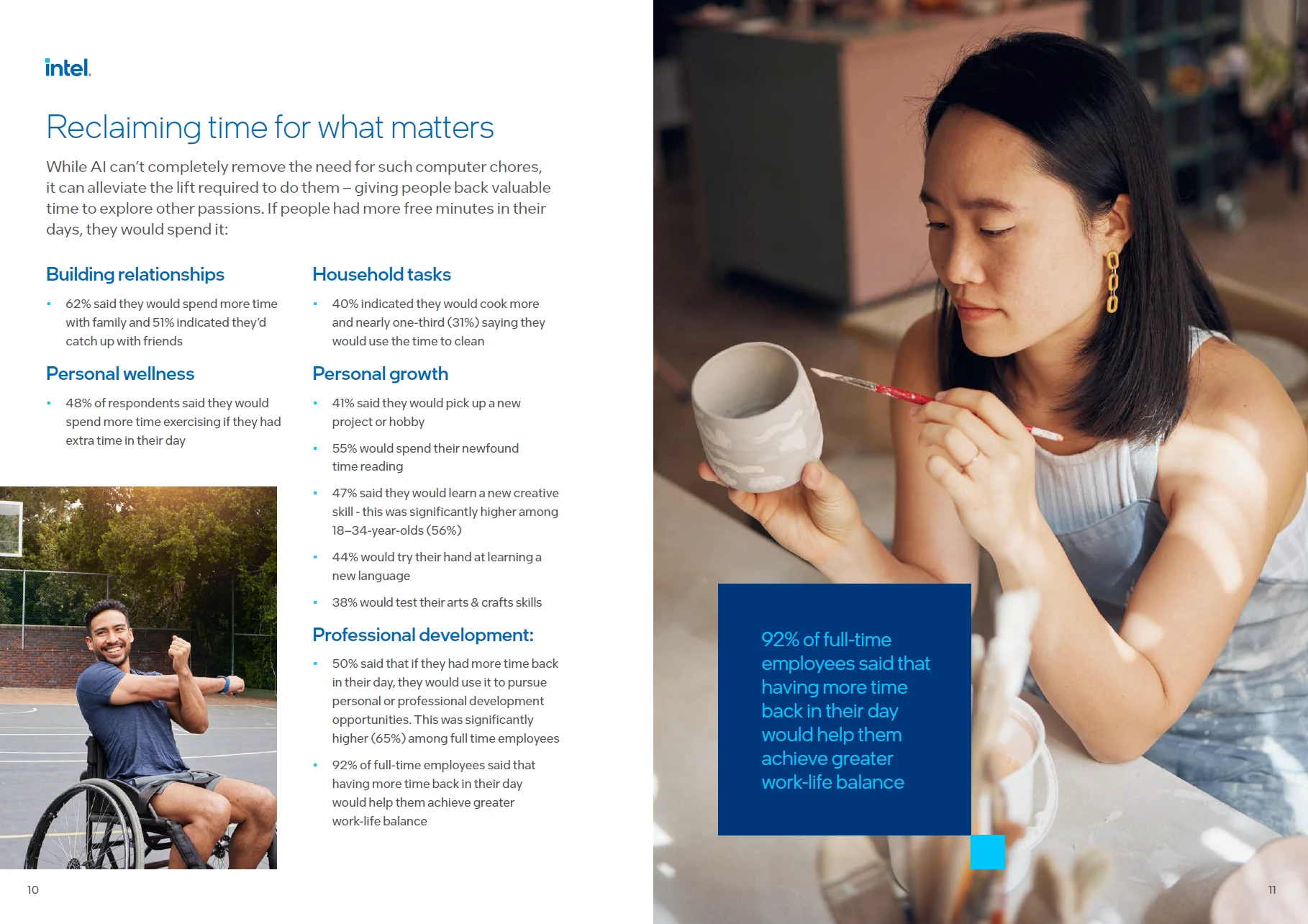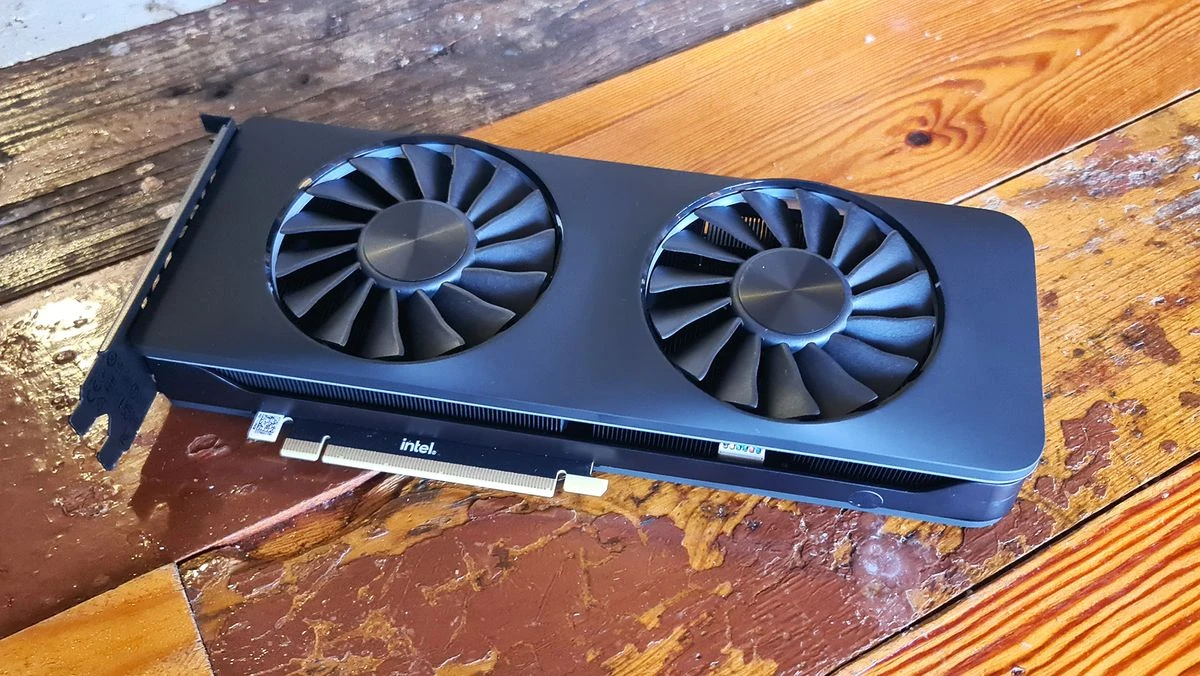A study commissioned by Intel on AI PCs shows that AI PCs are actually good.
What is an AI computer, and do I really need one? This is a question that I've heard a lot over the past year. Along with "who do you think you really are" and "why not get a hair cut".
It's a difficult question to answer. Intel has created a document for those who have been debating AI PCs internally. It's called "Reclaim Your Day: The Impact of AI PCs on Productivity" (PDF warning).
The study is based on an 6,000-person survey commissioned by the chip giant. 6,000 people were surveyed in Germany, the UK and France about their computer usage, their awareness of AI PCs and how they would use the extra time they would gain if AI-enhanced computing became a reality. It's a positive response to the concept, whether you like it or not.
The report says that AI PCs can save users hours each week through features such as accelerated task processing and enhanced privacy. It also provides some numbers to support this claim. According to the study the "hidden costs of computer chores", which include "analysing" data, can add up quickly. On average, 74.63 hours a week are lost.
The average participant lost 78.62 hours of time coding. It seems high for a 6,000-person sample, but it would only take a few full-time programmers to boost that average.
Intel's study shows that AI PCs excel at this kind of thing. Under the heading of "quantifying AI advantage", productivity gains are said to be greater than 240 hours saved each week on routine tasks. This is "longer than an average flight from London Malta". Okay, then.
Some of the methodology used here is also odd. According to the survey, 44% of French respondents believe AI PCs to be "a gimmick" or "futuristic", which is a very different term to use for one question.
A second interesting statistic is that 86% said that they were concerned about the privacy and security of their personal data when using an AI computer, but only 17% believed that AI PCs were not secure or regulated.
This second metric appears to throw in two (this one slightly different) terms. It is possible to view something as secure but not regulated or regulated but not secured.
The report also identifies a "education gap", which it says shows that users need to understand AI implementation, and how to use them.
"Many AI users take a lot of time to figure out how to best communicate with AI tools in order to get the answers or responses they want." To truly demonstrate the potential of "everyday AI", organisations that provide AI-assisted product must offer more education.
What could we do with the time saved by using an AI PC correctly? The study asked participants to give their responses, and they gave some expected answers. 62% of participants said they would spend time with their families, 51% with friends and 40% with cooking.
I personally would take more windy beach walks. It's not surprising that people have a wide range of ideas when asked what they would do with more time. However, it does seem to miss the point.
As I've said previously, AI avatars, and other time-saving AI implementations, are not the problem. The problem is that AI could make humans less useful. This is a worrying thing. Anyone with a job in an office can see that the "computer chores", as identified by the study, are much improved. They also include many of the roles we're hired to perform.
Emailing. Filing documents. Scheduling calls Video editing. Photo editing. Copywriting. Analysing data. It's great to imagine an AI PC that can help you with these mundane tasks. But, when you realize that if AI can do them well enough to satisfy demand, you might not have much reason to work.
What if employers let you go while AI does your work so you can enjoy your free time, and you don't have to worry about it? Please forgive me, but I don't believe so.
Even so, 92% of full time employees said that more time would help them achieve a better work-life balance. This is not surprising to those who know where bears use the bathroom and what religion the Pope follows.
It appears that these concerns will not stop many consumers from purchasing an AI PC. 41% of respondents said they would consider one for their next upgrade. This is in addition to the fact that major manufacturers such as AMD and Intel have launched laptops with NPUs for AI processing.
Windows Intelligence, a Windows integration powered by AI, is a real thing.
This means that your next laptop will likely be an AI PC. This is all very elementary, but -and I'm not convinced that AI PCs will be a good thing in the future. It'll take a lot more than a study commissioned from a manufacturer who has this much invested in the game to convince you otherwise.







Comments